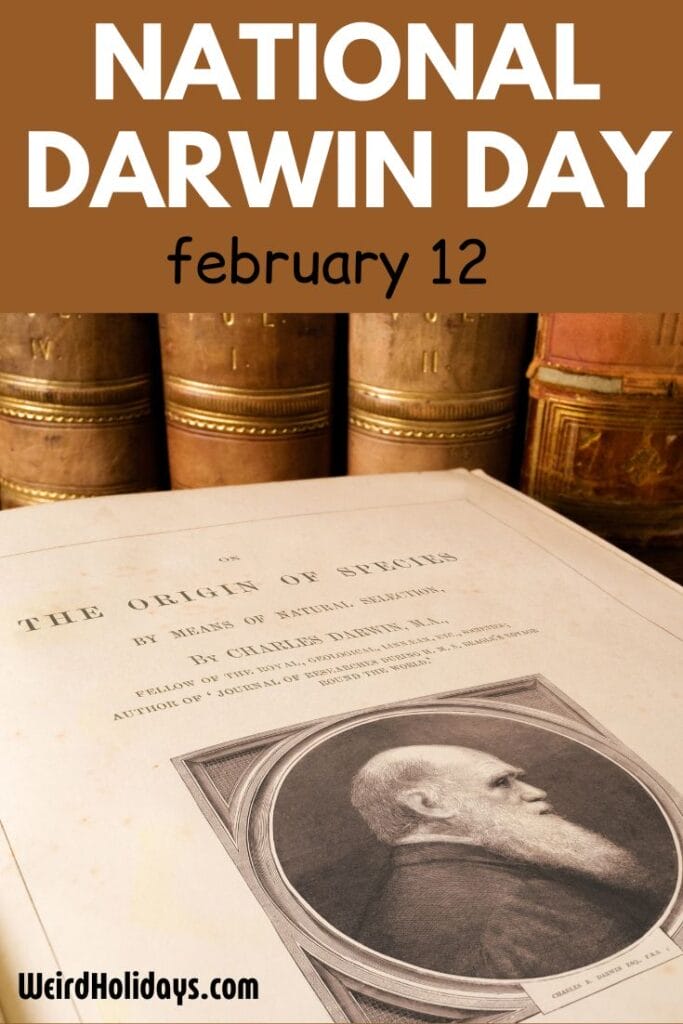National Darwin Day (February 12)
Check out the weird holiday National Darwin Day on February 12. Learn the history of Charles Darwin, and get ideas on how to celebrate.
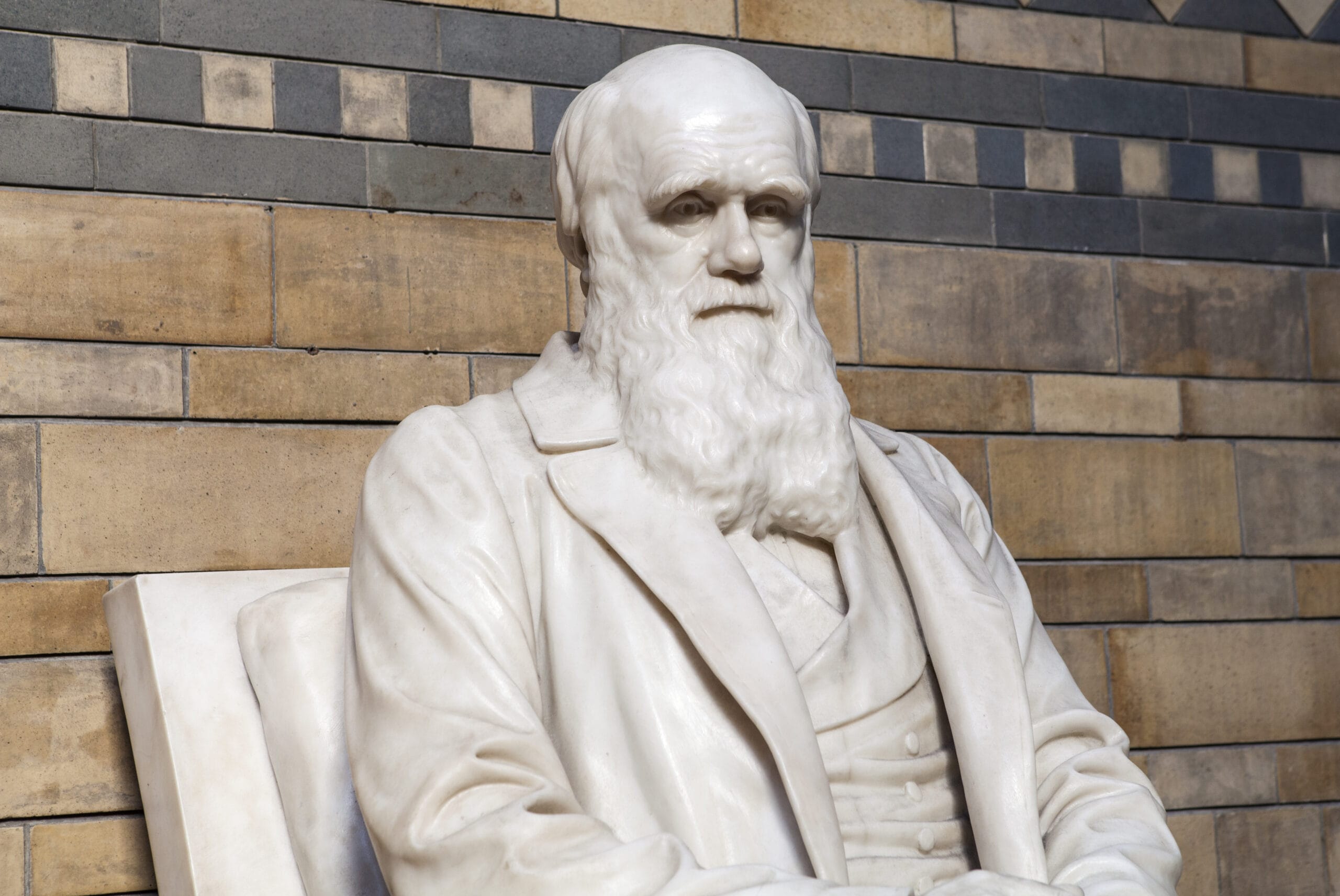
One weird holiday on February 12 is National Darwin Day. Check out the other weird February holidays!
National Darwin Day, celebrated on February 12th each year, commemorates the life and contributions of one of the most influential scientists in history—Charles Darwin. On this day, people around the world pay tribute to the groundbreaking work of Darwin, whose theory of evolution by natural selection revolutionized our understanding of the natural world and continues to shape scientific inquiry to this day.
National Darwin Day serves not only as a celebration of scientific discovery but also as a reminder of the importance of critical thinking, evidence-based research, and the advancement of knowledge in our society.
In this article, we will delve into the significance of National Darwin Day, the life and contributions of Charles Darwin, the impact of his theory of evolution, and the enduring relevance of his ideas in modern science.

The Significance of National Darwin Day
National Darwin Day holds profound significance in the scientific community and beyond. It serves as a day of remembrance and appreciation for Charles Darwin’s extraordinary contributions to the field of biology and the understanding of life’s diversity and origins. Additionally, it provides an opportunity to promote scientific education, critical thinking, and evidence-based research.
As society continues to grapple with debates over science education, the acceptance of evolutionary theory, and the importance of evidence-based thinking, National Darwin Day stands as a symbol of the power of scientific inquiry and the value of rigorous investigation in shaping our understanding of the natural world.
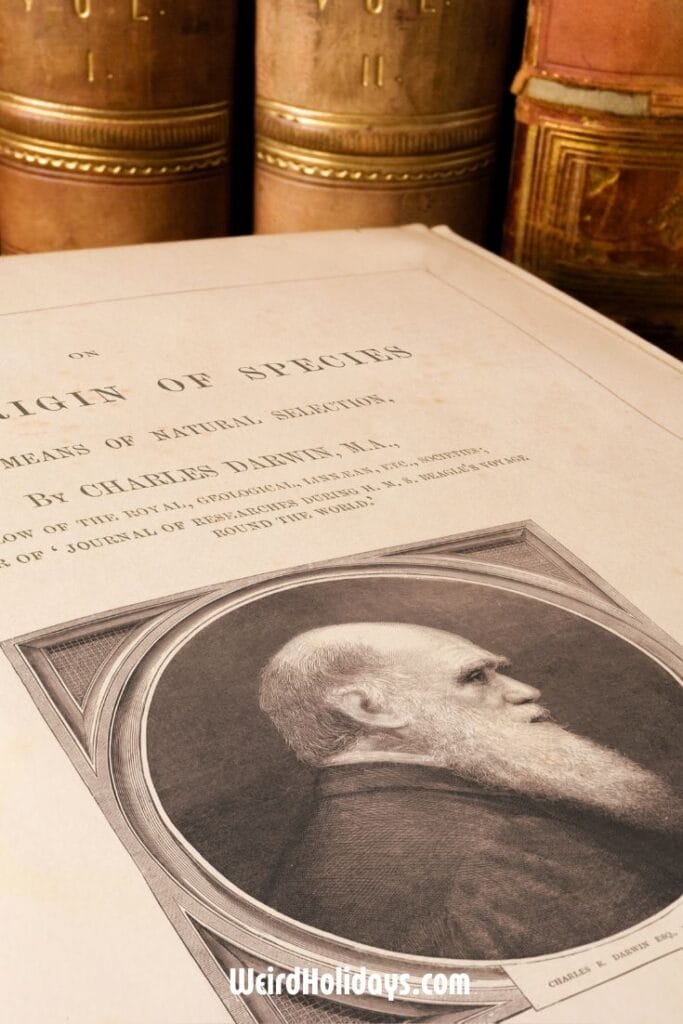
The Life and Contributions of Charles Darwin
Charles Robert Darwin was born on February 12, 1809, in Shrewsbury, England. From an early age, Darwin demonstrated a keen interest in the natural world, collecting specimens and observing the flora and fauna around him. Although his father initially hoped he would pursue a career in medicine, Darwin’s passion for natural history prevailed.
In 1831, at the age of 22, Darwin embarked on a five-year voyage aboard the HMS Beagle as a naturalist. The expedition, led by Captain Robert FitzRoy, took him to various regions of the world, including South America, the Galápagos Islands, Australia, and the Cape Verde Islands. During his travels, Darwin made a plethora of observations and collected specimens that would later form the basis of his groundbreaking work.
Darwin’s most significant contributions to science were presented in his seminal work, “On the Origin of Species,” published on November 24, 1859. In this revolutionary book, Darwin proposed the theory of evolution by natural selection, challenging prevailing beliefs about the creation and diversity of life on Earth.
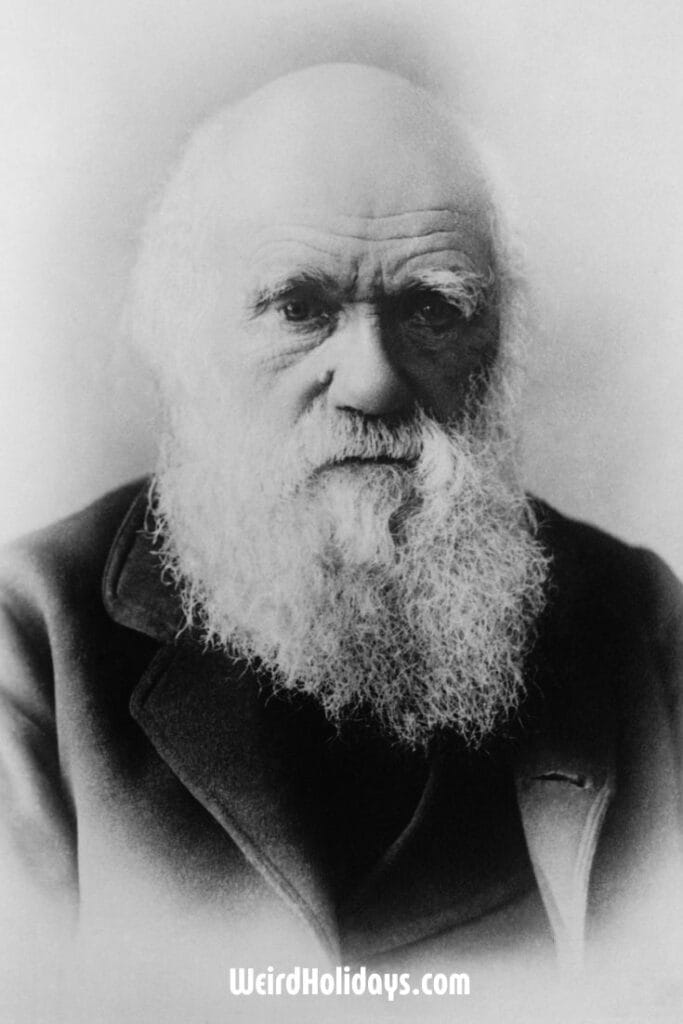
The Theory of Evolution by Natural Selection
Darwin’s theory of evolution by natural selection proposed that species change over time in response to their environment and that those individuals with advantageous traits have a higher likelihood of surviving and reproducing. As generations pass, these advantageous traits become more prevalent in the population, leading to the gradual evolution of species.
The theory of evolution had far-reaching implications, as it provided a natural explanation for the diversity of life on Earth without the need for divine intervention. It suggested that all living organisms share a common ancestry, underscoring the interconnectedness of life and the intricate web of relationships in the natural world.
Darwin’s theory sparked significant debate and controversy, challenging deeply held religious beliefs and sparking discussions about the relationship between science and faith. Despite opposition, the scientific community gradually embraced Darwin’s ideas, and his theory of evolution became a cornerstone of modern biology.

The Impact and Legacy of Darwin’s Work
Charles Darwin’s theory of evolution has had a profound and enduring impact on multiple fields of study. The acceptance of evolution has transformed our understanding of biology, paleontology, genetics, anthropology, and numerous other scientific disciplines.
- Biology: Evolutionary biology, a branch of biology that studies the processes of evolution, emerged as a prominent field of study following Darwin’s work. Scientists continue to explore how natural selection and other mechanisms contribute to the diversification and adaptation of life on Earth.
- Genetics: With the advent of genetics in the 20th century, Darwin’s theory found even greater support. The discovery of DNA and the principles of inheritance provided a molecular basis for understanding how traits are passed down through generations, corroborating Darwin’s ideas.
- Paleontology: The fossil record has provided substantial evidence for the evolutionary history of life on Earth. Paleontologists have discovered transitional fossils that offer crucial insights into the gradual changes and diversification of species over time.
- Anthropology: Evolutionary theory has also been instrumental in the study of human origins and the development of Homo sapiens. By examining the fossil record and genetic evidence, anthropologists have uncovered the evolutionary journey that led to the emergence of modern humans.
- Conservation Biology: Darwin’s theory has also influenced conservation efforts by highlighting the interconnectedness of species and ecosystems. Understanding evolutionary relationships can inform conservation strategies and the protection of biodiversity.
- Social Impact: Beyond its scientific impact, Darwin’s theory has had a profound social influence, challenging traditional beliefs about humanity’s place in the natural world. It sparked discussions about the relationship between science and religion, the role of education, and the importance of evidence-based thinking in society.

The Enduring Relevance of Darwin’s Ideas
More than a century and a half after the publication of “On the Origin of Species,” Charles Darwin’s ideas remain central to the study of biology and the understanding of life’s complexity and diversity. As scientific knowledge continues to advance, researchers have refined and expanded upon Darwin’s original theories, incorporating modern genetic research, molecular biology, and ecological studies.
Furthermore, the concept of natural selection has been applied beyond the realm of biology. The principles of adaptation and survival of the fittest can be observed in fields such as economics, sociology, and psychology, providing valuable insights into human behavior and societal dynamics.
National Darwin Day serves as a reminder of the enduring relevance of Darwin’s ideas and the ongoing quest for knowledge and understanding in science. It emphasizes the importance of critical thinking, evidence-based research, and scientific inquiry in addressing the complex challenges faced by humanity.
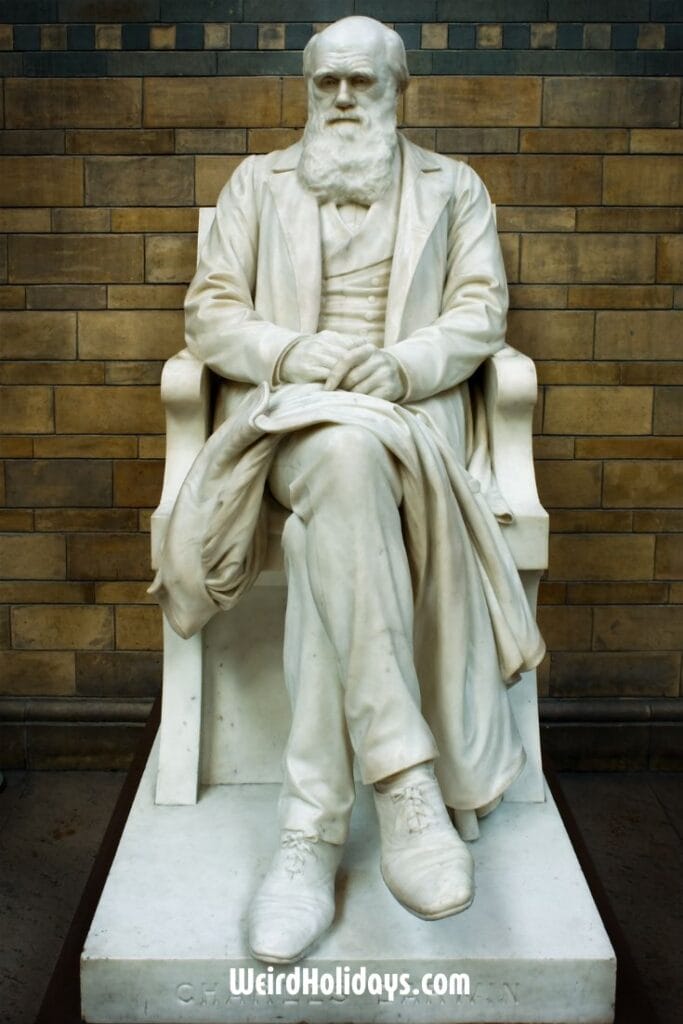
Celebrating National Darwin Day
National Darwin Day is celebrated in various ways by individuals, educational institutions, and scientific organizations around the world. Some ways to commemorate this day include:
- Lectures and Seminars: Educational institutions and scientific organizations often host lectures and seminars that focus on evolutionary biology, genetics, and related topics.
- Read books about Charles Darwin.
- Museum Exhibits: Museums and natural history institutions may curate exhibits that explore the work of Charles Darwin and the evidence for evolution.
- Science Outreach: Scientists and educators engage in science outreach activities, sharing knowledge about evolutionary biology with the public and students.
- Classroom Activities: Teachers incorporate lessons about Charles Darwin and the theory of evolution into their curricula.
- Enjoy traditional Ecuadorian food.
- Reading “On the Origin of Species”: Some people choose to read or revisit Darwin’s seminal work, “On the Origin of Species,” on this day.
- Social Media Engagement: On National Darwin Day, individuals and organizations often use social media platforms to share information about Darwin’s contributions and the significance of evolutionary theory.
- Visit the Galapagos Islands.

Conclusion
National Darwin Day is a time to celebrate the life and contributions of Charles Darwin and the transformative impact of his theory of evolution by natural selection. This observance serves as a reminder of the power of scientific inquiry and critical thinking in advancing our understanding of the natural world.
Darwin’s ideas have shaped the fields of biology, genetics, paleontology, anthropology, and many others, providing a foundation for scientific exploration and discovery. His theory of evolution has not only deepened our understanding of the diversity of life on Earth but also sparked discussions about science, faith, and the interconnection of all living beings.
As we celebrate National Darwin Day, we acknowledge the importance of evidence-based research, respect for scientific inquiry, and the ongoing pursuit of knowledge in shaping our understanding of the world. Let us use this day to honor Charles Darwin’s remarkable legacy and to inspire future generations of scientists, critical thinkers, and lovers of knowledge. Through continued exploration and curiosity, we can build upon Darwin’s work and contribute to the ever-evolving tapestry of scientific understanding.
Pin it!
Share this post about on Pinterest!
